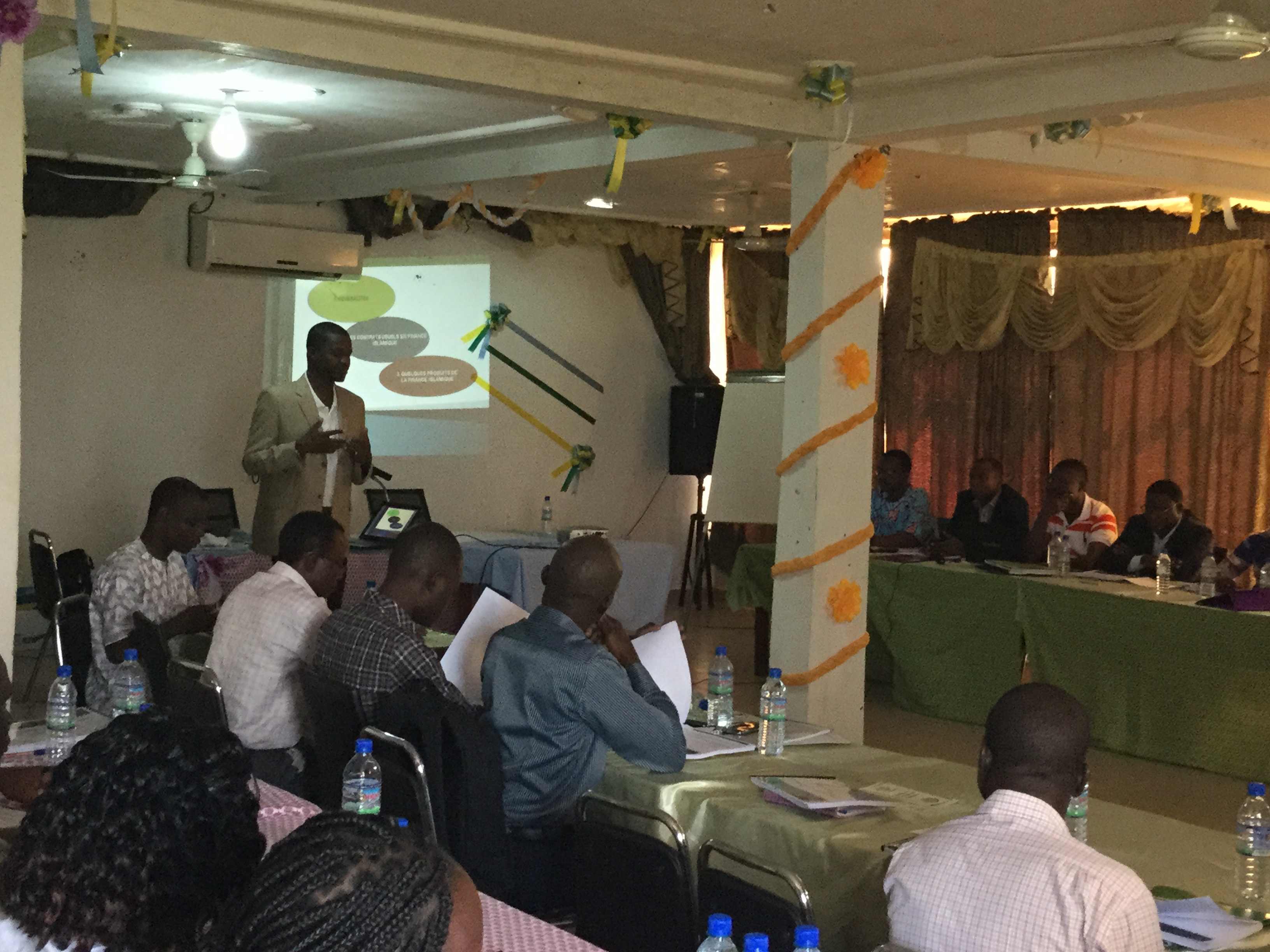From 13 to 15 October 2015, some forty participants from different regions of Benin gathered for three days at Hotel Beau Séjour in Natitingou to be trained in participative finance technics on the theme:
PARTICIPATIVE FINANCE: LEGAL FRAMEWORK, DEVELOPMENT AND ISSUES FOR DEVELOPING COUNTRIES
The training recipients (microfinance branch managers, Consortium Alafia, the umbrella organization for the decentralized financial systems (DFS), executives from the Directorate for promoting the microfinance sector, the ministerial body in charge of microfinance, executives from National Agency for DFS Surveillance in Benin (e.g: Monitoring Unit), microfinance institutions’ managers) got familiar with the following concepts:
- Core principles of Islamic finance and conventional terminology
• Developments in Islamic finance since the 1960s and geographical distribution
• Legal aspects of Islamic finance
• Regulatory framework for participative finance within WAEMU and Benin
• Islamic finance and development of Sub-Saharan African countries
• Islamic finance products: distinguishing between contracts and Islamic financial products
• The issue of guaranties in participative finance
Participants understood that Islamic finance or participative finance is not « exclusively reserved for Muslims »
To support this view, reference was made of Ahmad Mohamed Ali’s statement, the Islamic Development Bank’s President, who outlined the following during an interview with Jeune Afrique Economique magazine dated October 10, 2014:
« …. Even the United Kingdom adopted this, through issuing a bond of £200 million [EUR 256 million]. Islamic finance is not restricted to Muslim countries; it is simply another way of doing business. »
The issue of guaranties was addressed from the point of view of AAOIFI (Auditing and Accounting Organization for Islamic Financial Institutions) international regulation, explaining that such guarantees are only allowed against the unwillingness from the debtor to pay their debt, and not to cover the risk of non-payment.
One of the instruments for funding mobilization is securitization knowned as the SUKUK or Islamic bonds that can be structured into microsukuk, and participants became familiar with this concept.
The last segment of this training session was organized through brainstorming workshops around three working groups:
A- REGULATIONS AND LEGAL ASPECTS
B- SOCIOCULTURAL ASPECTS
C- PROMOTING AND MARKETING
The consultant subsequently made a series of recommendations on the establishment of a specific framework for participative finance by quoting some of the sections of the DFS Act that are deemed problematic and important to know.
Article 4: Collecting Savings
It is worth including in this article the possibility of collecting savings in the form of feasible investments by DFS clients to provide a legal basis for investment savings, in compliance with Islamic finance ethics such as investment accounts on the basis of Mudaraba or Musharaka contracts…
Article 36: DFS Equity Investments in Third Companies
…… Hence, the DFS implementing the participative approach should take up greater equity participations in the business of their customers.
Article 37: Managing and Monitoring Decentralized Financial Systems
Here is to consider providing a role and composition of a validation Ethics Committee in the institutional anchoring or at central level of Central Bank or within DFS itself.
Article 60: Traditional Practice of Interest Rates
In the process of spreading participative finance, this provision about DFS should specify that the DFS performing Islamic finance transactions would practice profit and loss sharing in spite of interest rates, amongst others.
Article 124: Legal Reserve, amounting to 15% minimum per year…
Specify some specific reserves, including:
– Profit Equalization Reserve (PER)
– Investment Risk Reserve (IRR)
…..
Follow us on www.dmconsultinng-france.com
DM Consulting Firm specializes in participative finance, crowdfunding, , capacity-building, technical assistance, product structuring, technical studies, regulatory reviews, market surveys and much more.

